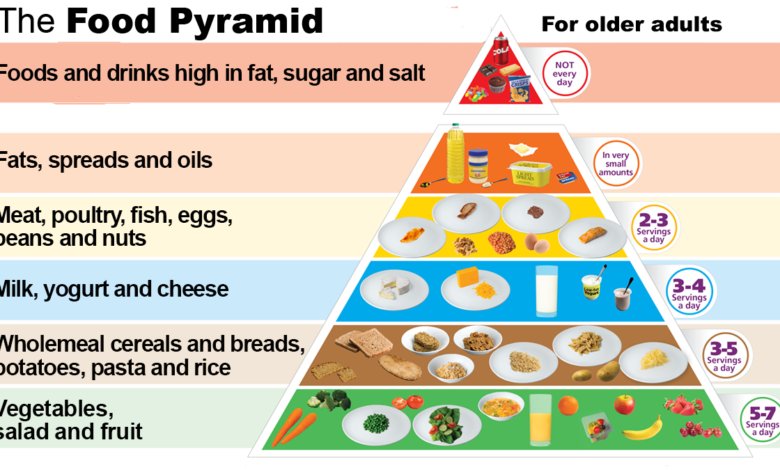Navigating Nutrition: A Senior’s Guide to Healthy Eating

In the golden years, maintaining good health becomes a top priority, and a cornerstone of that journey is a well-balanced diet. As we age, our nutritional needs evolve, requiring a more nuanced approach to what we put on our plates. Let’s explore the key elements of healthy eating for individuals over 60, offering practical tips, delicious recipes, and insights into nourishing the body for a fulfilling and active life.
Understanding Nutritional Needs
As the years advance, so do changes in our metabolism and nutrient absorption. It’s crucial to understand the specific nutritional needs that come with ageing. Calcium, vitamin D, fibre, and antioxidants become even more vital to support bone health, immune function, and overall well-being. While these general guidelines provide a foundation, it’s always wise to consult with healthcare professionals for personalised advice tailored to your unique health profile.
Building a Balanced Plate
Creating a balanced plate is akin to crafting a symphony of nutrients. Consider portion control and embrace mindful eating practices. A balanced diet should include a mix of lean proteins, whole grains, colourful fruits and vegetables, and healthy fats. Let your plate be a canvas of nutrients, and experiment with different combinations that not only satisfy your taste buds but also nourish your body. For some seniors, elderly meal replacement can be beneficial. This can save cooking and be an easy way to access the nutrients your body needs.
Hydration and Its Impact
Staying hydrated is often underestimated but is crucial in maintaining good health, especially in older age. Sip on water throughout the day, and consider hydrating foods like watermelon and cucumber. These not only contribute to your daily fluid intake but also bring a refreshing twist to your meals. For those who struggle to meet their hydration needs, alternative methods can be explored; for example, Semaglutide Injections London offers efficient and direct replenishment of essential fluids and nutrients. This approach can be particularly beneficial for individuals with specific health concerns or those seeking rapid hydration solutions.
The Role of Supplements
In certain cases, supplements can be a valuable addition to your diet. Vitamin D, B12, or omega-3 supplements may be recommended to ensure you meet your nutritional goals. However, always consult with your healthcare provider before adding supplements to your routine.
Signs You Should Improve Your Diet
There’s a famous saying that everybody knows: you are what you eat. Indeed, your diet will contribute to your mood, skin and overall body, which means it’s important to invest time and money into what you consume. If you don’t feel your best, it could be down to what you’re eating and drinking on a regular basis. Here are some signs that your diet could do with an overhaul.
Feeling Sluggish
Do you feel like you lack energy during the day? This can affect your concentration, activity levels and mood. Well, know that when you have low energy, this could be a consequence of having the wrong diet. In particular, you may not be consuming the essential nutrients your body needs to function at its best. Instead of loading up on caffeine to combat low energy levels, try switching up and improving your diet.
Bad Digestion
Do you have digestive issues on a frequent basis? We’re talking about gas and bloating, as well as constipation and heartburn. All of these are signs that you’re not eating the right food. Indeed, you could have an intolerance, which should be investigated. But, you can also benefit from including more fibre, complex carbohydrates, lean meats and fruits into your diet. This could do the trick for your digestion.
Breaking Out
Pay attention to your skin and what it’s trying to tell you. If you have skin that’s dry and dull, as well as having spots, this can be down to what you’re eating. In particular, processed foods aren’t going to be good for your body, which can star to show on your skin. Sometimes, even the best skincare can’t overcome these issues. You must start from the inside.
Mood Swings
Do you feel like you’re high and full of energy one minute, then irritable and tired the next? These mood swings can be caused by the food and drinks you’re consuming. For instance, this can be a sign that you’re consuming a lot of sugar. You want to limit the amount you’re consuming if it’s not natural sugar. Instead, try to be balanced on what you consume, ensuring that you get complex carbohydrates, vitamins and minerals.
You Worry
If you know that your diet could be better, you can worry about the impact this food is having on your body. Well, the best way to turn this around is by making small changes and adjustments to your plates. For example, cutting back on sugar and adding more greens at dinner can be an easy way to feel and look better. Know that changing your diet isn’t an easy thing to do, and it’s better to approach this gradually. Many make the mistake of overhauling everything at once and soon falter. To prevent worrying, start small and gradually cut down on junk food.



